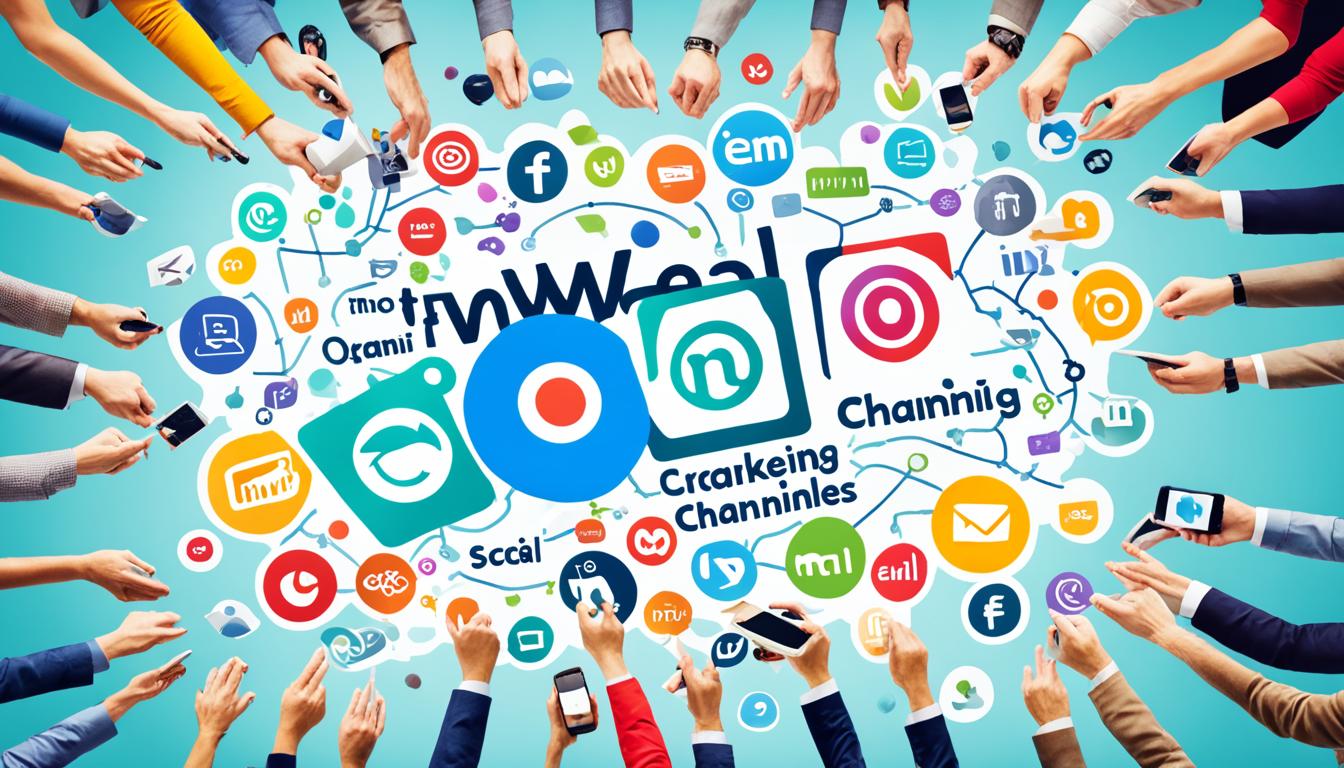Introduction
AI has revolutionized the way businesses manage their digital presence. From traditional marketing approaches to integrating AI with them, we have come a long way. One of the most important promotional strategies 2024 is using a targeted approach in marketing. This approach stabilizes client relations and strengthens customer loyalty. But will it help your business in the long run? Let’s find out.
Hyper-targeting is one of the critical elements in modern marketing methods. Since consumers expect a brand to know and target their specific needs. That saves time for both consumers and marketers. According to a study by Epsilon, 80% of consumers are more likely to purchase when brands offer personalized experiences. Imagine receiving emails and notifications that are catered to your likes and dislikes. Will you not feel special and valued? Even if a single customer is treated with care, satisfaction, and response, conversion levels will improve.
In this article, we’ll explore how AI revolutionizes personalized marketing. We will also discuss various techniques businesses can use to scale their efforts successfully. Let’s dive right in.
Why is There a Need for Personalized Marketing?
Before everything, we must learn from where the need for personalization arose. Why is AI the one technology needed to get the job done? Why not any other? The answer is plain and simple, though.
The integration of AI in marketing campaigns is the main reason for improving the effectiveness of a personalized marketing approach. AI technologies allow both small-scale and large-scale businesses to analyze large volumes of information to make sense of their customers’ interactions and preferences. This makes it possible to develop extremely specialized and workable campaigns that are also cost-efficient. AI enables a company to target customers in the right manner and send them a relevant message at an appropriate time, thus making the marketing efforts fruitful.
The Shift From Traditional to Digital Personalization
In the past, there were two main ways of personalization.
- Directly emailing individually.
- Sending emails to segmented email lists of customers.
But all of those tasks were handled manually.
With the integration of AI, we can hasten the process with precision. Here are two reasons behind the drastic shift.
- The rapid rise of digital marketing mediums.
- Increasing expectations of customers for personalized communication and offers.
How can We Leverage AI for Personalized Marketing?
Artificial intelligence is the advanced technology that can automate tasks, optimize and organize marketing strategies, and offer a quick solution to most marketing problems. Here are three technologies that will help you leverage AI to transform your hyper-personalization and hyper-targeted marketing campaigns.
- Machine learning: It involves improving automation mechanisms through using past business data. ML algorithms also help you predict customer behavior, personalize content for them, and optimize your existing marketing campaigns.
- Natural language processing (NLP): It helps the tools understand and interpret your customers’ queries and respond to them in a human-like tone and language. It can used through chatbots.
- Predictive analytics: You can use past data from your marketing campaigns to forecast the future of your marketing campaigns. You can make real-time changes based on what’s working and what’s not.
These AI technologies work together to enhance various aspects of marketing, making it more efficient and effective. Let’s take a look at the benefits AI brings to the table in the contexts of hyper-targeting and hyper-personalization.
AI-Driven Techniques for Hyper-Targeted Campaigns
Here are three key components of hyper-targeted campaigns.
Segmenting customers and creating detailed profiles.
One of the key areas where AI has significantly helped businesses is in customer segmenting and profile creation. Before you can create targeted campaigns for your customers, you need to have detailed profiles about their likes and dislikes, preferences, buying behavior, interests, and demographics like name, age, gender, etc. That’s where AI comes to the party. AI assists in finding prospects and similar customers within your domain in order to create targeted marketing techniques.
AI can help find patterns that analysts cannot and are capable of categorizing customers based on their ordering rate, average order value, and preferred goods. This segmentation allows marketers to appeal to their potential buyers effectively and personally, thus making communication more effective.
Using predictive analytics to determine customer behavior.
Predictive analytics is another AI-based method that helps companies predict customers’ preferences and requirements. Based on past data of their interactions, predictive analytics can forecast the likelihood that the customer will buy the next product or need the next service at what time. It also enables businesses to communicate with customers using tailored messages and special offers.
For example, if a customer purchases running shoes every six months, predictive analytics will assist you in scheduling the targeted marketing campaign with the next expected purchase time. This level of tailor-made strategies can greatly enhance conversion rates and client satisfaction.
Integrating dynamic content in your personalization campaigns.
Dynamic content personalization involves using AI to deliver tailored content to users in real-time. This means the content customers see on your website, in emails, or through ads is customized based on their current interactions and previous behavior. AI can modify headlines, images, product recommendations, and content sections to match individual preferences.
For instance, in retail platforms, AI is quite prevalent in offering similar recommendations based on the web history of the specific user. This scroll list will hold the latest electronics; If a customer often views tech gadgets, the scroll list will have electronics products in it. Likewise, email marketing promotions can use dynamic content to display messages that include specific offers and products depending on the customer’s previous buys.
Using dynamic content in personalization is not only a plus for the users but also concerts more sales and their interests in your business. A report from Evergage, which is now acquired by Salesforce, revealed that 9 out of 10 marketers have observed that their customers expect personalized communication. So, if the customer willingly accepts it, what’s stopping you?
Tools and Platforms for AI-Powered Personalized Marketing
You can integrate the personalization features discussed above into your website. These tools and technology are also available through third-party vendors. Here are a few top platforms to look out for.
- HubSpot is a one-stop marketing solution for all your needs and requirements, like automating tasks, designing and sending emails, etc. It assists in segmenting contacts, choosing the most relevant content for the email, and adjusting the campaigns according to their effectiveness. Some notable characteristics of HubSpot are Lead Scoring, which determines the leads’ potential to buy, and Predictive Analytics, which estimates campaign performances. Some peculiarities that make HubSpot loved by marketers are its interface, which is very easy to work with, and advanced analytics.
- Marketo is not just another tool. It’s for marketers who want to dig deeper while learning about their customers. It consists of segmentation, targeted e-mail marketing, and real-time behavioral monitoring. Thus, using Marketo results makes it possible to maintain consistency in delivering content while working in several channels to provide the best customer experience. It also syncs well with all the available CRM platforms.
- Salesforce, especially Einstein AI, personalizes customer interactions. The key features of Einstein AI include lead scoring and forecasting, sending smart replies to emails, and recommending content based on past buying behavior. The integration possibilities with other Salesforce products and applications also ensure that customer profiles are fully managed and easily accessible when creating marketing campaigns.
These platforms offer features that enable businesses to deliver highly personalized marketing messages, improve customer engagement, and increase conversion rates. What’s next? Well, the future looks brighter than ever before. Instead of waiting for a change, let’s discuss what more there is to do.
What are the Future Trends in AI-Powered Personalized Marketing?
The truth is that we have only scratched the surface until now. There is so much more about artificial intelligence that we have yet to explore. Here are a few advanced technologies and innovative strategies that you can look forward to in the future to scale personalized marketing for your business.
- Deep Learning Models and Neural Networks can help you make more accurate predictions and determine your customers’ preferences.
- You can use generative technology to create personalized content at scale.
- You can use NLP-powered tools to improve customer service.
- You can use hyper-personalization and real-time personalization to enhance how your business interacts with your customers.
The key is to enhance user experience and offer seamless access to your products and services across all touchpoints.
What is the Role of AI in Omnichannel Personalization?
The purpose of omnipresent personalization is to offer a seamless user experience across all touchpoints. And when you integrate AI in that, you can automate most of the tasks.
Here is what AI can do for you:
- You can create unified customer profiles by aggregating data from multiple channels in one place.
- You can deliver personalized messages across multiple channels, including emails, social media, websites, chatboxes, etc.
- AI ensures that the transition between different channels feels smooth and easy to your customers.
- AI-driven insights and offers help your customers stay engaged with your business. Your customers feel valued when you show up to them with the right content at the right time. They are more likely to convert at this point.
Key Takeaways
Using Artificial Intelligence for highly targeted advertising campaigns opens up opportunities for new and old businesses to look beyond routine marketing strategies. The same that your competitors use and adopt. As new-age marketers, you can send out highly targeted and timely messages using customer segmentations, predictive analysis, and timely dynamic appearance of content.
These techniques ensure that your marketing efforts are effective and feel more personalized and meaningful to your customers. So, what can we expect going forward? Integrating AI in marketing will continue to experience a boost. You can ask more from the experts at Mavlers, who have worked on hyper-targeted campaigns for their clients. Mavlers is a new-age digital marketing agency with years behind its experienced professionals. Most of the insights in this article are a testimony to them.
So, Mavlers concludes that any business using AI tools and technologies in its operations today can effectively compete with other businesses and balance the continuously rising customer requirements. Although AI’s integration can seem overwhelming, the hyper-targeting couldn’t have been possible otherwise.




